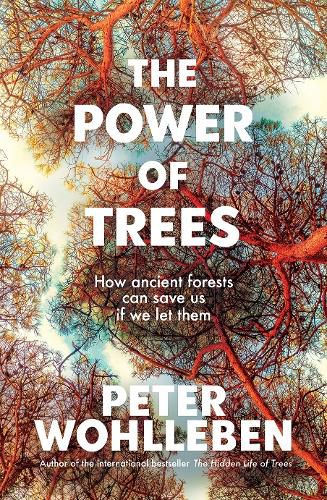Readings Newsletter
Become a Readings Member to make your shopping experience even easier.
Sign in or sign up for free!
You’re not far away from qualifying for FREE standard shipping within Australia
You’ve qualified for FREE standard shipping within Australia
The cart is loading…






$9.00 standard shipping within Australia
FREE standard shipping within Australia for orders over $100.00
Express & International shipping calculated at checkout
The latest book by bestselling German author of The Hidden Life of Trees is a fascinating deep dive into the latest research from the world of forestry, including how trees are adapting to climate change, and what we can learn from them.
Wohlleben uncovers fascinating first-hand research about the ability of trees to rapidly change and adapt their genes. This means that if one generation has suffered drought, the seeds of that tree will be better able to adapt to drought-like conditions. Trees are also smart enough to adapt and change within their lifetimes to suit their environments.
We learn about why some trees turn their leaves red in autumn (interestingly, it has to do with aphids), how forests (not monoculture plantations) can reduce temperatures by up to 20 degrees Celsius, thereby arguing for their importance in city environments, and many other fascinating facts that are changing how we think about trees and their importance as we experience a rapidly warming climate.
The book also looks at recent research around carbon storage capacity of trees, is scathing in critiquing dodgy accounting methods being used to justify the felling of forests in Europe, and questions the motivations of some policy leaders. Wohlleben is not afraid to put forward controversial opinions, both in life and in his books, and his critique of the global forestry industry is strident, particularly in the context of urgently taking action to abate climate change.
The main trees that Wohlleben discusses are, of course, European trees – oak, birch, pine and spruce – so we can’t necessarily extrapolate all of his findings directly to eucalypt forests. He suggests that the best thing we can do with forests is to leave them alone, while First Nations wisdom suggests that bush forests needs to be managed to manage fire risk. But his extensive research on tree behaviour, coupled with his powerful ideas make fascinating reading that is worth engaging with on an intimate level. And I’m sure I’m not alone in my eagerness to attend his university course on environmentally friendly forestry management!
Like all Wohlleben’s work, The Power of Trees is highly readable, brimming with solid research, and a passionate endorsement of the importance of forests for humanity and the planet.
See what the Readings’ team have to say on the blog, discover related events and podcast episodes.
Discover the wonders of nature in this fascinating and awe-inspiring collection.